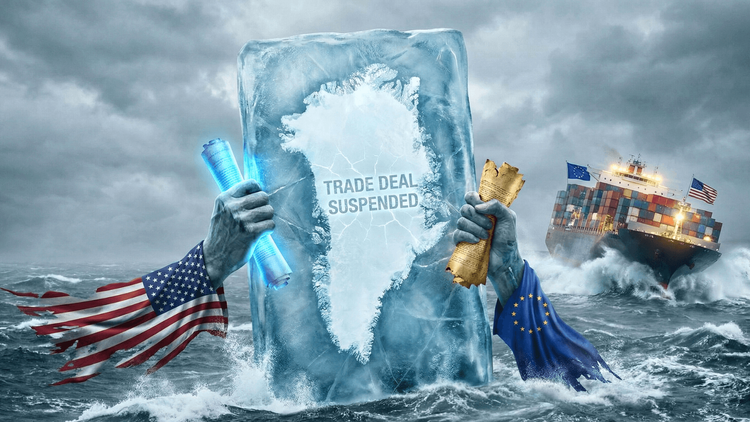Mission Critical: How Trump Aims to Break China’s Mineral Monopoly
Trump’s Pentagon-Based Refining Plan Aims to Cut China’s Grip on Critical Minerals

In a bold move to counter China’s dominance over critical minerals, U.S. President Donald Trump is planning to establish refining facilities on Pentagon military bases. According to sources within the administration, this initiative is part of an executive order that could be signed as early as Wednesday. The objective is clear: expand America’s production of essential minerals and reduce dependency on Beijing.
The Strategic Importance of Critical Minerals
The U.S. military relies heavily on minerals processed by China to manufacture fighter jets, submarines, and advanced weaponry. The Trump administration sees this as a national security vulnerability. Establishing domestic refining capacity on military bases would help mitigate the risks of supply chain disruptions, ensuring that the U.S. military remains independent from foreign-controlled resources.
Why Pentagon Bases?
By choosing military land for these refining facilities, Trump is sidestepping many of the bureaucratic and environmental hurdles that have slowed private-sector mining projects. The Pentagon controls approximately 30 million acres of land, offering ample space to develop secure and efficient refining operations. This approach eliminates the need for land acquisition and avoids potential conflicts with local communities that typically resist mining and refining operations in their backyards.
The Battle Against China’s Dominance
China currently dominates the global processing of rare earth elements and other critical minerals, accounting for 30 out of the 50 minerals deemed essential by the U.S. Geological Survey. While American mining companies have advocated for streamlined mine permitting processes, Trump’s focus is on refining rather than extraction. The logic is simple: even if the U.S. boosts domestic mining, it remains reliant on China for processing. By establishing U.S.-based refining operations, Trump aims to break this dependence.
A New Critical Minerals Czar
As part of this broader initiative, Trump plans to appoint a "critical minerals czar" to oversee domestic efforts in securing the supply chain. This move mirrors previous strategies used to tackle national priorities such as drug enforcement and trade policy. The czar would coordinate government agencies, industry stakeholders, and regulatory bodies to ensure a smooth execution of the initiative.
The Absence of a Strategic Mineral Stockpile
Despite concerns over supply chain vulnerabilities, Trump does not intend to create a national critical minerals stockpile, akin to the Strategic Petroleum Reserve. While some officials and mining companies have advocated for such a measure, the administration is opting for direct infrastructure investments instead. The goal is to establish sustainable production capabilities rather than stockpile minerals in anticipation of future shortages.
No "Buy American" Mandate—Yet
Interestingly, Trump's order will not include a mandate requiring U.S. defense contractors to purchase only American-mined minerals. This decision is likely to disappoint junior mining firms that have long lobbied for policies that would favor domestic producers. Instead, the administration appears to be relying on market-driven solutions to increase competitiveness rather than imposing direct purchase requirements.
Regulatory Challenges Ahead
One major question remains: How will these refining operations comply with U.S. environmental regulations? While Pentagon land offers a strategic advantage, facilities operating within these bases would still be subject to the Clean Air Act and Clean Water Act. Historically, these regulations have been a major roadblock for mining and refining projects. How Trump plans to navigate these hurdles remains unclear.
Expanding FAST-41 to Accelerate Permitting
Although Trump’s order does not seek to alter the 1970 National Environmental Policy Act, which governs mine permitting, it does aim to expand the FAST-41 initiative. This program, originally established to streamline infrastructure projects, was previously used by the Biden administration to fast-track South32’s Hermosa zinc-manganese project in Arizona. Expanding this framework to include critical mineral processing facilities could accelerate project approvals significantly.
Reclassifying Mine Waste: A New Resource?
Another key element of Trump’s executive order is the potential reclassification of mine waste on federal land. This move aligns with strategies already employed by major mining companies like Rio Tinto and Freeport-McMoRan, which have successfully extracted valuable minerals from previously discarded waste rock. If implemented, this policy could provide a cost-effective alternative to opening new mines, potentially unlocking domestic supplies of copper and other essential minerals.
The Copper Question
Copper is crucial for everything from electrical grids to military hardware. Yet, it is still uncertain whether Trump will classify it as a "strategic mineral." Doing so would allow domestic producers to access a 10% production tax credit, a move that Freeport-McMoRan, the largest U.S. copper miner, has been actively lobbying for. If approved, this tax incentive could save Freeport alone an estimated $500 million annually, encouraging further investment in domestic copper production.
Implications for U.S. Industry and Geopolitics
Trump’s plan, if executed successfully, could significantly alter the global critical minerals landscape. By reducing America’s reliance on China, the U.S. would gain greater control over supply chains that are essential for defense, energy, and advanced technologies. However, the plan also faces potential resistance from environmental groups, regulatory agencies, and even within the mining industry itself, particularly from companies that were hoping for broader reforms to the mine permitting process.
The Road Ahead
While Trump’s initiative marks a significant shift in U.S. mineral policy, its success will depend on how effectively it can be implemented. The regulatory landscape, industry response, and geopolitical ramifications will all play a role in determining whether these proposed Pentagon-based refining facilities become a game-changing solution or a bureaucratic quagmire. One thing is certain: the battle for critical minerals is now a central issue in both national security and economic policy.
Conclusion
Trump’s push to establish refining facilities on Pentagon bases underscores the administration’s commitment to securing America’s critical mineral supply chain. While the plan bypasses some traditional roadblocks, it introduces new regulatory and logistical challenges. Whether this bold strategy can effectively counter China’s dominance remains to be seen. However, one thing is clear: the race for mineral security is more critical than ever.






